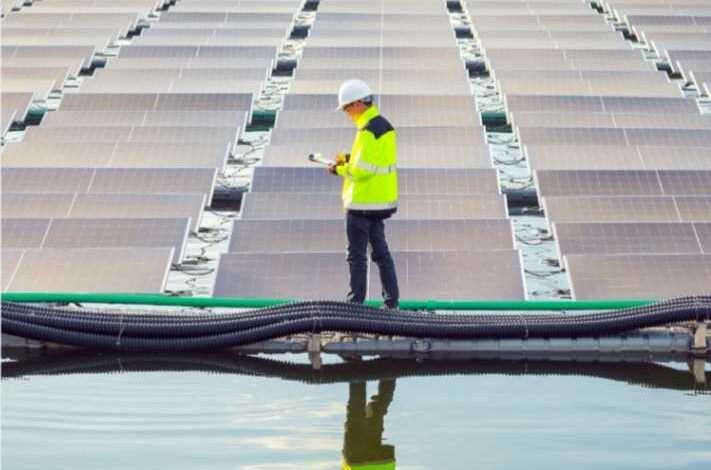French firm OSMOSUN to construct solar desalination plant in Kuwait
The facility, with a capacity of at least 50,000 cubic meters per day, aims to deliver high-quality water within two years to meet growing demand and prevent future shortages.

• The French company OSMOSUN presented a study to the Ministry of Electricity, Water, and Renewable Energy on advanced fuel-free desalination technology. The project aims to establish a solar energy plant that powers a desalination facility for efficient, cost-effective water production.
A French global investor specializing in the construction of desalination plants using renewable energy and advanced technology has submitted a comprehensive proposal to finance the establishment of a solar desalination plant in Kuwait.
This facility would have a capacity of at least 50,000 cubic meters per day, depending on the ministry’s requirements, and is expected to be completed within two years. The project aims to provide high-quality water, meet the growing demand, and prevent potential future shortages, according to informed sources who spoke with Al-Qabas newspaper.
The sources stated, “The French company OSMOSUN has presented a comprehensive study to the Ministry of Electricity, Water, and Renewable Energy almost a year ago on the advancements in modern desalination technology that does not require fuel, in contrast to existing and older desalination plants. The project involves establishing a solar energy plant that powers a desalination facility to produce water with the highest efficiency at the lowest cost.”
The sources also pointed out that “many countries around the world are transitioning to the use of solar energy for water desalination, utilizing the technology developed by OSMOSUN.”
Delays in desalination and power generation projects
The sources emphasized that, given the delays in desalination and power generation projects, the absence of submissions for some projects, and budget constraints, it is essential to expedite the establishment of water production plants as soon as possible through an independent provider system. This is crucial to avoid water shortages similar to those experienced with electricity supply issues. They noted that an initiative of this importance remains stagnant and has not been resolved to date.
Sources explained that the Ministry of Electricity, Water, and Renewable Energy is planning to build a desalination plant in the West Doha area, along with other plants, which may incur significant costs for the state.
The sources urged the ministry not to hesitate in implementing the independent provider system, as it is the most suitable option and the least expensive solution. This approach shortens timelines and bypasses bureaucratic hurdles, allowing the government to avoid any risks or costs associated with the construction and operation of the desalination plant. They also pointed out that a decree was issued some time ago allowing for the purchase of energy and water from external sources.
Advantages of the initiative
Sources indicated that the French initiative is characterized by the following advantages:
- Reduced carbon emissions: Utilizes modern technology to achieve less carbon output.
- Rapid construction: The possibility of building a desalination plant with a capacity of 50,000 cubic meters per day or more within two years.
- Cost-free development: Financing, implementation, operation, management, and maintenance of the desalination plant and solar power plant will be covered by the developer, with no cost to the state.
- Financial capability: The developer possesses the financing and financial capacity to construct, operate, and maintain the water production and electricity generation plants, and to sell them to the state through a contract extending for 25 years or more.
- No government risks: The government will not bear any risks or costs associated with the construction and operation of the desalination or solar power plants.
- Competitive pricing: Offers a price lower than the current cost of water production, resulting in financial benefits for the state.
- Global expertise: The developer is a global entity with substantial expertise in desalination and renewable energy.
- Flexible location: The system can be applied in any location, as it does not require a fuel network or electrical grid.
- Suitability for Failaka Island: Appropriate for use in Failaka Island.
- Energy supply for the ministry: The possibility of using solar energy to supply power to the Ministry of Electricity’s network.
- Quick operation: A short and standardized timeframe for the operation of desalination units.
- Versatile water sources: Can utilize seawater or well water for desalination.
- Carbon emission mitigation: Reduces carbon emissions, particularly those from older plants that consume significant amounts of fuel and incur high maintenance costs.
OSMOSUN has over 60 references globally
The sources stated that modern technology has been implemented to produce water in many countries around the world. This technology consumes less energy and has a high capacity to reduce carbon emissions.
They added that OSMOSUN has over 60 references globally, across various geographical regions, including Europe, Australia, the Caribbean, Asia, the Pacific, and Africa.












